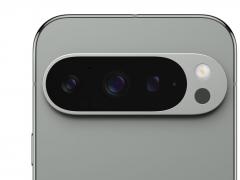
Google just introduced DeepSomatic, an AI tool designed to spot cancer-related mutations in tumour DNA with far greater precision than current methods.
Cancer begins when the cell’s natural “stop” mechanisms fail, allowing uncontrolled growth. To treat it effectively, doctors need to understand which specific genetic mutations are driving that growth. That’s why genome sequencing—reading the tumour’s DNA—has become such an important part of cancer diagnosis and treatment.
This new research, published in Nature Biotechnology, uses convolutional neural networks (a type of deep learning model) to identify genetic changes in tumour cells more accurately. And in a major win for the scientific community, Google has made both DeepSomatic and its high-quality training dataset freely available.
The challenge of finding somatic variants
Cancer genetics isn’t straightforward. Genome sequencing can uncover potential mutations, but it’s tricky to tell true genetic changes apart from sequencing errors. That’s where AI can make a big difference.
Most cancers aren’t inherited—they come from somatic mutations, which are genetic changes that happen during a person’s lifetime. These can be caused by things like UV exposure or random DNA copying errors. When they interfere with normal cell behaviour, the result can be unchecked cell growth—the hallmark of cancer.
Spotting these somatic mutations is especially tough because they often appear at very low frequencies, sometimes even lower than the background noise of sequencing errors.
How DeepSomatic works
Here’s how it operates in a clinical setting: researchers sequence DNA from both tumour and normal (non-cancerous) cells. DeepSomatic compares the two, pinpointing mutations that only appear in the tumour.
The AI transforms raw sequencing data into image-like representations that show how DNA sequences align along the chromosomes. A convolutional neural network then analyses these images to distinguish between inherited genetic variants, normal reference sequences, and cancer-causing somatic mutations—all while filtering out potential sequencing mistakes.
The result? A detailed list of mutations that may be driving the tumour’s growth.
DeepSomatic can even function in “tumour-only” mode, which is a game-changer when normal samples aren’t available—something that happens often in blood cancers like leukaemia.
Training a smarter AI for cancer research
To build a tool this precise, Google collaborated with the UC Santa Cruz Genomics Institute and the National Cancer Institute to create a benchmark dataset called CASTLE. They sequenced tumour and normal cells from breast and lung cancer samples using three different sequencing technologies. By merging the results and removing errors unique to each platform, they created a unified, high-quality reference dataset.
This dataset revealed just how different cancers of the same type can be at the genetic level—an insight that could help tailor treatments to individual patients.
When tested, DeepSomatic consistently outperformed other leading methods across all sequencing technologies. It was especially strong at identifying insertions and deletions (Indels), earning a 90% F1-score on Illumina data (versus 80% for the next-best method) and more than 80% on Pacific Biosciences data (where the next-best scored below 50%).
It even excelled with tricky samples like those preserved using formalin-fixed-paraffin-embedded (FFPE) methods, which can degrade DNA, and in whole exome sequencing (WES) tests, which focus only on protein-coding genes.
One AI for many cancers
What’s impressive is that DeepSomatic’s accuracy isn’t limited to the cancers it was trained on. When tested on glioblastoma, an aggressive brain cancer, it correctly identified the key mutations behind the disease. In collaboration with Children’s Mercy Hospital in Kansas City, it analysed paediatric leukaemia samples—working in tumour-only mode—and not only confirmed known mutations but discovered ten new ones.
Why this matters
Google hopes DeepSomatic will become a go-to tool for researchers and clinicians. By detecting both known and new mutations, it could guide existing treatment options and open doors to new therapies.
The ultimate goal? Precision medicine—using AI to tailor treatments to each patient’s unique tumour profile and, ultimately, improve outcomes for people facing cancer.







